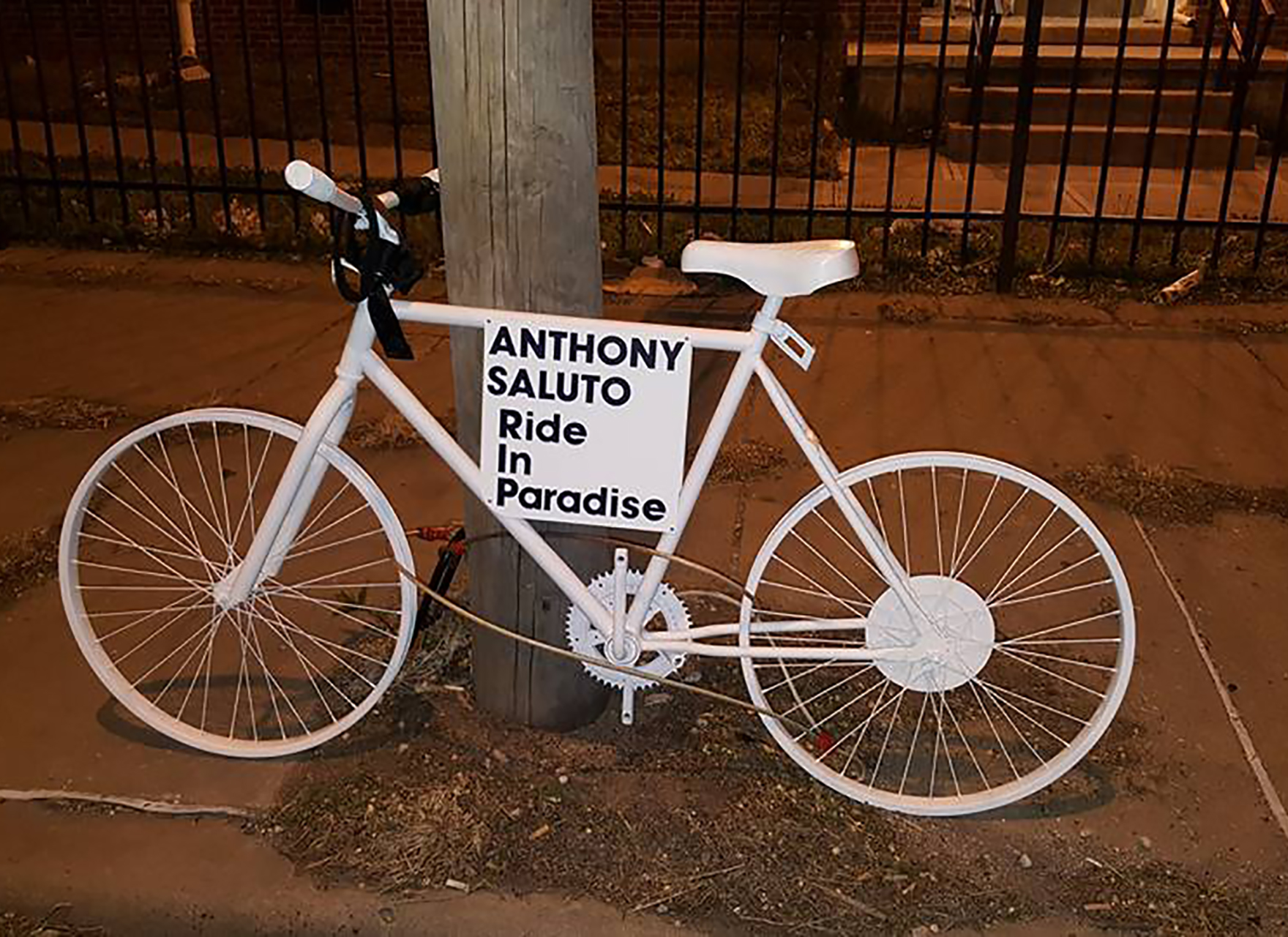
By Paul Thompson
Northeast News
On April 3, 2016, bicyclist Anthony P. Saluto was struck and killed near the intersection of Independence Ave. and Forest Ave. by a silver 2002 Lexus 300 driven by Joseph Lasala.
On Thursday, August 16, Lasala plead guilty to 1st Degree Involuntary Manslaughter, a Class B felony offense. While Lasala faces a maximum of seven years in prison as a result of the fatal wreck, he will only have to serve 120 days in prison and five years of probation with good behavior.
Though he faces the possibility of serving the full seven-year term if he fails his probationary period, there were some at the sentencing hearing who lamented that Lasala could end up serving only four months in prison. Following the crash, an examination of Lasala’s blood found traces of benzodiazepine, cannabinoids, cocaine and opiates in his system. What’s more, Lasala initially denied being distracted or under the influence, while also attempting to claim that Saluto rode out in front of him suddenly, making a crash unavoidable.
Security footage, however, showed that Saluto was riding properly, traveling westbound in the northern-most lane. Two witnesses to the fatal crash reported seeing the silver Lexus veer into the westbound lanes and strike the sidewalk, several utility poles, and Saluto. Crime scene investigators determined that Lasala was traveling between 47 miles per hour and 57 miles per hour at the time of the crash.
According to the Jackson County Prosecutor’s Office, on August 16 Lasala’s attorney suggested that his client has expressed consistent remorse since that fateful night. Still, Saluto’s family and Michael Kelley from BikeWalkKC pressed the judge to consider a stronger sentence for Lasala.
“The peace we wish for him and his family can only begin to come by making sure that Mr. Lasala is held responsible for Anthony’s death,” Kelley said in an impact statement delivered during the hearing. “Punishing Mr. Lasala won’t bring Anthony back, but it can send a clear message that the safety of vulnerable road users is a priority, not only leading to a broader understanding of who deserves protection on the road, but enabling policymakers to pass more stringent rules and regulations to bring the permanence of that protection to the pavement.”
The judge ultimately declined, noting that no sentence could change the events of April 3, 2016. That said, he “implored the defendant to take to heart what he had heard from the victim’s family,” according to the press release sent out from the Prosecutor’s Office.
To Kelley, the sentencing was a bitter pill to swallow.
“It was very somber; incredibly disappointing to say the least,” Kelley said. “At the end of the day, Anthony is gone because of those bad decisions.”


















